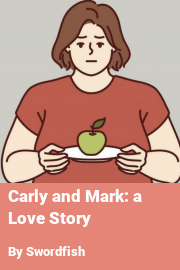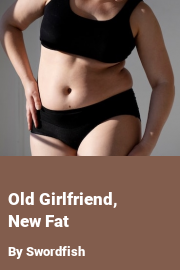Chapter 1
VIVIENNE MEETS SHIRLEY TEMPLEYou noticed the cheekbones first. High in the face. Prominent. Not to enough to give her a model's living skeleton look - Vivienne's weight was strictly average, along with her build - but enough to give the face definition and character. Then perhaps you noticed the lively brown eyes, intelligence shining out of them, or the short auburn hair. Or the accent perhaps. American, was it? No, Canadian, clipped and piquant, with a gentle lilt.
In her late 20s, she had recently joined the staff at the Westminster Public Library in London. Everyone liked her: a fresh face at last in a building over-stacked with worthy souls working towards retirement. She had opinions, and if you encouraged her out they would flow, in a left-inclined political direction. She was always vexed about the sins of the world, social inequalities, the struggles of the dispossessed, immigrant groups or single mothers. It made a bright change from talking about the binding for a new run of periodicals.
She had poise, too, and decorum, and good manners. Nothing slovenly about her figure, either. She went to the local health club once a week, streaking round the track and treading away on the Stairmaster, trim in her black lycra. For years her weight had scarcely budged from around 126 pounds. Her firm breasts were small, edging towards medium; a male student during her days at London University had once called them pert, which Vivienne did not appreciate. Her tummy swelled slightly with water retention during her periods, but otherwise stayed taut and flat, as undemonstrative as her bottom. Hips? Slightly wider than some other women her weight, perhaps, but that was because of her build, nothing else.
Vivienne offered an attractive package. But you had to be of a certain fibre to become intimate and join the friends she had found on the barricades. There was Kyra, an old friend from Canada, now working in London too. There was Claudia, a French girl, encountered in a local group affiliated to the Socialist Workers' Party. To be Vivienne's friend you had to be prepared to listen to her analyse and ponder. A working knowledge of Marxist intellectuals helped too. And a willingness to ditch life's basic pleasures for what she considered higher things. Students at college had found this out. Faced with a choice between the latest super hero movie and a lecture on childbirth methods in Samoa, Vivienne would always pick childbirth. Her suitors dwindled.
Not that having children herself seemed a possibility. Sex and close relationships joined food, fun and relaxation as something kept at arm's length. "You care so much about other people's lives," her mother had told her once, "but you don't take very good care of your own". At the time, as a student, Vivienne had not realised what she was on about. Even now, older and supposedly wiser, she was too busy with her new job and the intellectual whirl inside her head to notice the hole in her heart.
Colleagues at the library had rushed to take her on "getting to know you" lunches. She didn't eat lunch. But she would agree to a coffee, perhaps a sandwich. The conversation was often dry: one of her superiors, John, could not be shifted from talking about modifications to the library's classification system. In others she struck more of a spark: Richard, Tony, Arlene.
And Roy. He was not on the staff, but a freelance something or other who used the library regularly for research, often on cinema history. To many he seemed terminally shy, but Vivienne detected a lively mind buried within. Roy, for his part, noticed the cheekbones, the sparkle, the whole works, and tried to open up in her presence. One day, Vivienne found him poring over a book about Shirley Temple.
"Isn't this wonderful?" He was consulting the book for factual details about the 1930s child star, but it was the illustrations that kept him crouched on the floor, transfixed by the pictures of childhood's lost innocence and the well-rounded face of a girl obviously no stranger to chocolate cake.
Vivienne had her own viewpoint. "Think how warped that child was, leading such a pampered life in the Great Depression. Here she is looking so well-fed when so many were tramping the breadlines."
"But that's Hollywood escapism. That's why she was popular!"
Roy was tickled by Vivienne's unique slant and wanted to talk more. Could this be the day he would finally find the courage to say the words that seemed so difficult for him, so easy for everybody else?
He found himself saying them. "You're not free for lunch, are you?"
"I don't really eat lunch," she said, "but I could have a coffee with you. I'm free at 1.30. Now I'll let you get back to worshipping at Shirley's temple."
"Why does everyone expect me to eat lunch?" Vivienne thought as she returned to her tasks. She'd never eaten lunch. Oh, occasionally a yogurt or a salad, but nothing that came on a plate involving a serious knife and fork. Her appetite was healthy enough, but she had long years of practise in restraining it. To her it seemed such an indulgence to eat at mid-day. It used money that she didn't have. It was unnecessary for her body's functioning. And she certainly didn't want to get fat. No woman did; no women Vivienne knew at least. All her women friends were slender. Some could be called spindly. Out of all the stirring conversations they'd had none of them had ever been about food.
At the Fox and Grape pub where Vivienne and Roy went, Vivienne's eye spied another library assistant, Roma, tucking into a thick pie crust with plenty of chopped meat underneath, ringed with unnecessary potatoes. Vivienne looked concerned. She had silently watched Roma over the last six months gain a fair bit of weight; she had seen her waist gradually thicken, her tummy start to bulge, and chubbiness creep over her pretty face. Poor woman, Vivienne thought. To let herself go like that! She used to be quite slim, and now she's chubbier than Shirley Temple.
Roy's voice cut through Vivienne's reverie. "You sure you won't have anything to eat?"
"No, no. I'm not really hungry. This coffee will be fine. I'm at the age when a woman's metabolism can slow down, and can really push the weight up if you're not careful. It's been happening to some at the library." She mentioned no names. She was Canadian. She was polite.
Roy didn't quite know what to say. He wanted to ask for more details - he appreciated women who fattened up a little - but was too tongue-tied to press the point. The talk moved on to generalities, each others' work, holiday plans: safe enough topics. All in all, Roy thought lunch went well. Vivienne found it pleasant enough; Roy was sweet, but, oh, so shy. As they gathered their belongings to leave, Roma squeezed past Roy's chair, heavy breasts stretching her pink t-shirt, round smiling face briefly framed by a developing double chin.
"Hello, Viv!" she said cheerfully, working her way through the lunchtime crush.
"Oh, hello!" Inside her head Vivienne was positioning Roma on the bathroom scales. "Poor woman," she thought, "she must feel awful."
WHO IS THAT HANDSOME MAN?
And then she met Paul.
Their paths crossed at a dinner at Claudia's place. He was tall, with blue eyes and sandy hair. And he was French. An old friend of Claudia's, he was attending classes at the London School of Economics before taking up a job in Lyon as a community relations officer. Vivienne took in his appearance, but what really riveted her, she convinced herself, was his mind. Immigrant workers in Paris. The Algerian problem. He knew so much; his opinions were so sharp. She was in love, she decided, with his brain, and over the rice and lentils (Claudia was going through a vegetarian phase) she decided that her prince had come.
Phone numbers were exchanged. They met for drinks after work. They attended lectures, and sat in uncomfortable seats at the Lux Cinema, watching documentaries from Poland. And along the way they ate.
Paul took his food almost as seriously as politics. Neither his size nor his appetite was huge, but he wanted the morsels that reached his mouth to be just so. He was French, after all. Vivienne took to visiting him at the flat where he was staying in the dreary south London suburbs: from unprepossessing corner shops he somehow summoned the necessary ingredients for dishes worthy of a Cordon Bleu chef. He'd done courses, he told Vivienne, and had worked on and off as a cook. It was a good sideline, and he liked the irony of using money earned in rich people's restaurants to fund the battles for social justice.
Vivienne, used to Claudia's rice and lentils, or her own snatched meals hurriedly assembled after work, found Paul's perfectionism about food unusual, even suspect. To her food was fuel, nothing more. But when he put such effort into creating his chicken à l'orange, it was impolite not to eat most of it. Not that Viv paid that much attention to the delicacies spooned with reverence onto the chipped dinner plates, clearly bought at a charity shop. It was the conversation that mattered.
"Brecht's poems are so cold and clear, aren't they?" Vivienne said one night, spreading butter thickly onto the garlic bread.
"In language, yes." Paul's lilting French accent entranced her ears. His English was good - just as well, for Vivienne could only hobble along with French half-remembered from high school. Vocabulary, grammar, pronunciation: everything was a struggle. "But in ideology don't you find him - what shall I say? - somewhat soft? In the post-war years in the German Democratic Republic it was good to stay a distance away from the official line of the party. Those communists were such creeps!" He had picked up the last word somewhere in London, and kept on using it. "But in Hitler's Germany..."
"But don't you think that even there, he - ": Vivienne's mind was suddenly distracted by the taste of the chicken speared into her mouth. "Gosh, this chicken is good. What was I saying? Yes, don't you think Brecht's whole strength comes from his status as a balladeer of the people, not the party?"
"A balladeer?" Paul stretched out the last syllable as though it were chewing gum. "What is a balladeer?"
"A maker of songs. Isn't there a German word, 'Liedmacher'?" A forkful of honey-coated potato interrupted her. "I'm sure my pronunciation is terrible, but - ". Without thinking she helped herself to another potato.
"I admit," said Paul, "no-one is better than Brecht in his understanding of the capitalist - the capitalist - ". He ransacked his mind for a suitably horrid word: "the capitalist beast!"
"The capitalist beast? Well, it makes a change from capitalist creep!" She was laughing hard.
Brecht was followed by the poetry of Lorca and the agony of the Spanish Civil War. Chicken was followed by a mixed salad with vinaigrette, a cheese platter, coffee, Gauloises, and chocolate cake soaked in rum.
The dinners continued. Soon, Vivienne found herself staying over, living half the time with Paul, half the time in her own small rented flat in north London. The months mounted up. Without realising it, the two had formed a relationship; so much so that when Paul was due to return to Lyon, Vivienne realised that she didn't want to lose him.
Pretty soon she had big news to tell friends and colleagues. She was going to leave her job. She was going to move to Lyon, and try this thing called love. She thought she was wise enough, she said, to be sceptical about the very existence of perfect partners, but she had to admit that Paul was the closest to perfection she had ever met. Things might not work out, but it was worth the try. Her job here wasn't that marvellous, she said, nothing worth clinging to.
Claudia thought her very brave. Kyra thought her foolhardy, and told her so. "But what will you do there? It will be hard finding employment, with your poor French."
"In that case, I will just live with him and be his love, as the old poet Andrew Marvell once said."
"Marvellous for Marvell, Vivienne, but what about the girl? She was probably bored stiff."
Vivienne could not be budged. Her mind was made up.
She was surprised how many people at the library wanted to have farewell lunches with her. After all, she had not been there much more than two years. But she was touched, and put no-one off with a warning about just having a coffee and a sandwich. She had lunch, two courses-plus affairs, stretching into the mid-afternoon.
"Everyone's being so nice to me," she said to Roy in their booth in the Flying Hussar, tucked away in a side street. Their friendship had flourished in a quiet way. "This is my third lunch this week." Roy spotted a small swell on Vivienne's tummy, not noticeable before. He also realised she was looking a little rounder in the face. Was Vivienne, the woman who seemed to shrink from all indulgence, actually starting to put on weight?
He was also struck by the number of times that food now entered her conversation. She told him what she'd eaten the day before. She told him what Paul was going to prepare that night. He was dying to mention that he thought she looked a few pounds heavier, prettier too, but could not bring himself to utter a word. Vivienne herself never raised the topic; she was too busy attacking her Hungarian goulash, laying out plans, and hoping that one day Roy would come to Lyon for a visit.
"Hello, Vivienne! When are you leaving?" It was Roma's voice. She was standing in the aisle, en route to the ladies room, looking slightly plumper than before.
"The end of next week. Maybe we could have lunch? What a nice girl she is," Vivienne added after Roma left.
***
4 chapters, created 1 year
, updated 1 year
7
1
2864











Comments